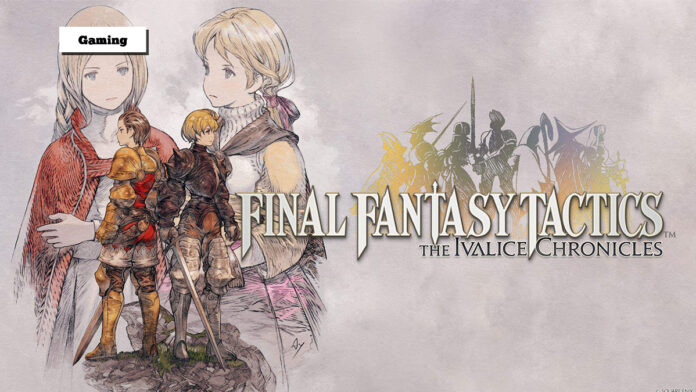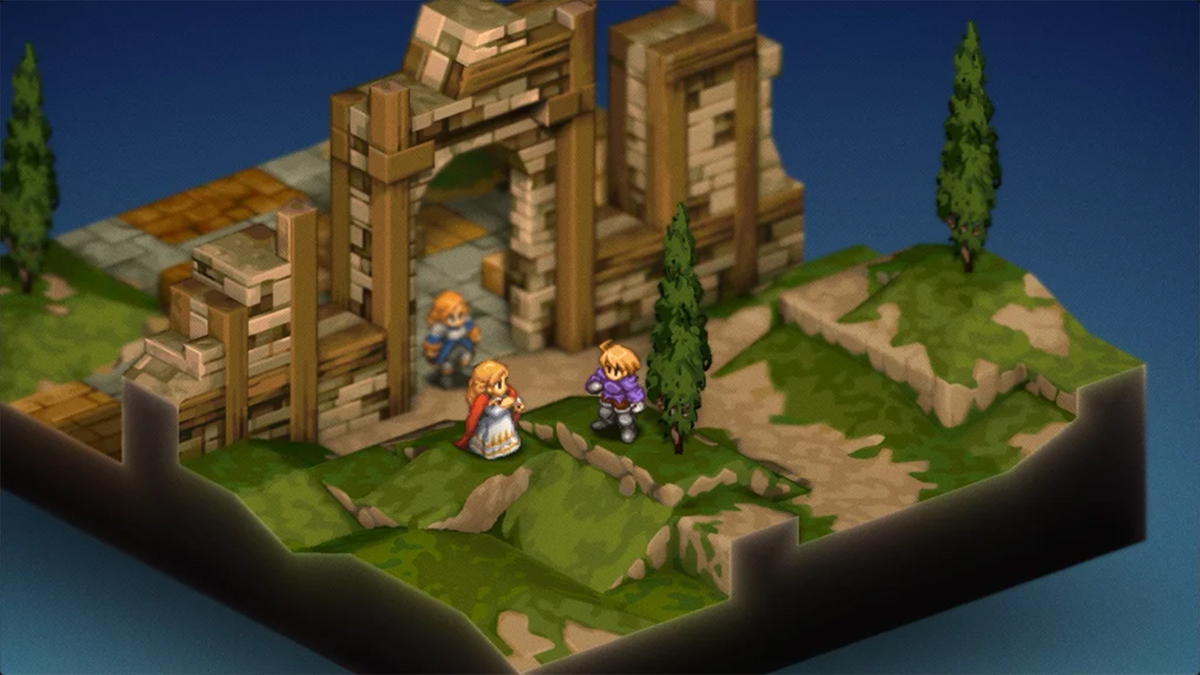
I was raised hearing the saying “patience is a virtue” constantly, from my childhood to the present. I first played Final Fantasy Tactics in 1997, and its port, The War of the Lions, to the PlayStation Portable (PSP) in 2007. From that point on, I wanted a port to the PC. A lot of (non-)numbered Final Fantasy games had gotten this treatment. After all, many games outside of Nintendo-developed games are (or will be) no longer console-exclusive. Many years later, the NVIDIA leaks named Tactics as a game that would potentially get a remaster or remake. Video game journalist Jason Schreier also confirmed that it was in development in 2024. This made the question turn into when, rather than if, the game would ever come out. An entire childhood and some change later, Final Fantasy Tactics: The Ivalice Chronicles would finally come to all current popular platforms. Would the wait be worth it, or would it be just another cash grab for the folks at Square Enix?
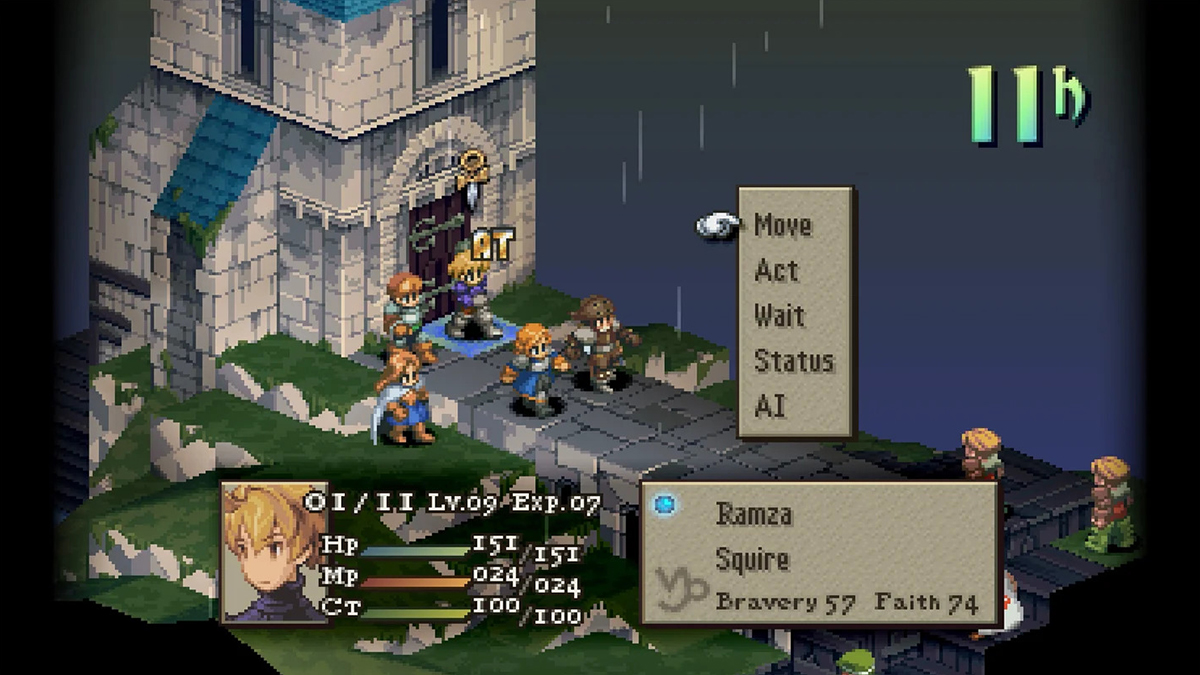
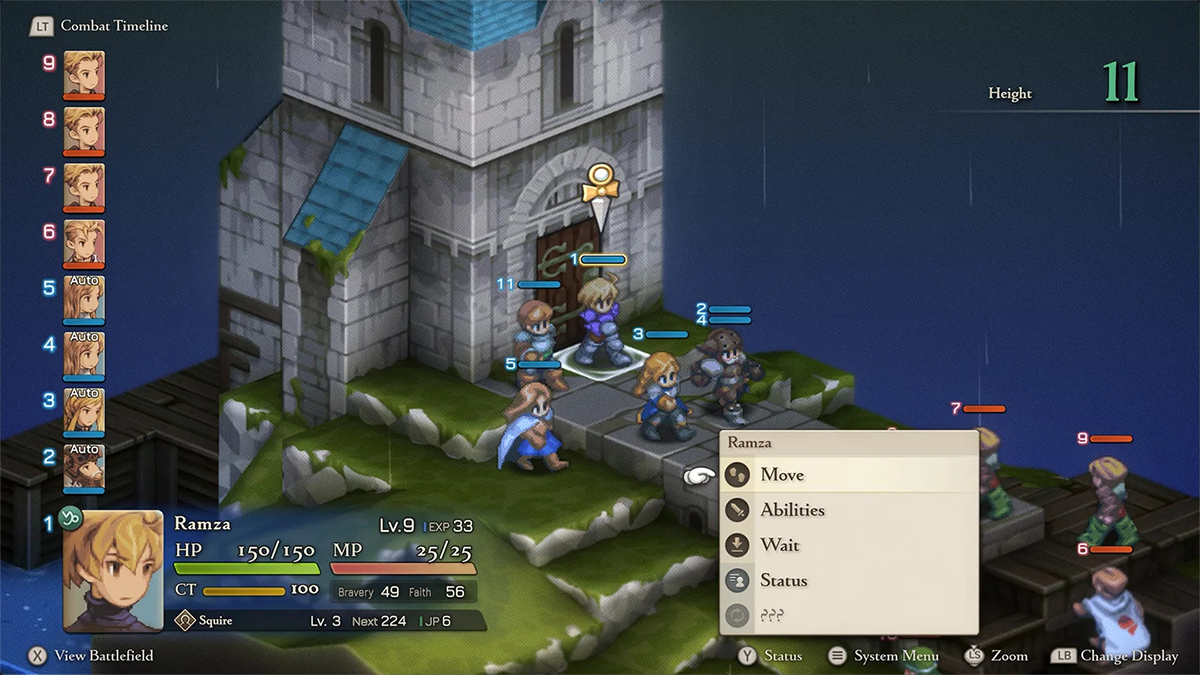
Investigating why it took so long for the game’s remaster, it was much simpler than I had originally thought: the game’s source code was lost, so this wasn’t a refusal to remaster one of the best (if not the best) non-numbered Final Fantasy games. This isn’t uncommon in the gaming industry, and fans keep the memory of games alive either through emulation or owning physical copies of the game. Thus, the game had to be rebuilt from scratch, which, like anything in life, has its pros and cons.
While the game stays intact for the most part, the War of the Lions content is cut due to the developers wanting a true remaster of the original. You play as Ramza Beoulve, a former nobleman who tries to end a long-standing conflict between the Order of the Northern Sky and the Order of the Southern Sky over their claimants to the Ivalician throne, only to find out that darker forces want to prolong the war for more nefarious purposes. The game is set in the same universe as Final Fantasy XII, except centuries later.
Each generic character can play as one of 20 jobs: Squire (the starter class for many of the physical classes), Chemist (the starter class for many of the magical classes), Knight, Archer, White Mage, Black Mage, Monk, Thief, Mystic, Time Mage, Geomancer, Dragoon, Orator, Summoner, Samurai, Ninja, Arithmetician, Dancer, Bard, and Mime. Some story characters, instead of being a Squire or Chemist, come with their own unique class and abilities.
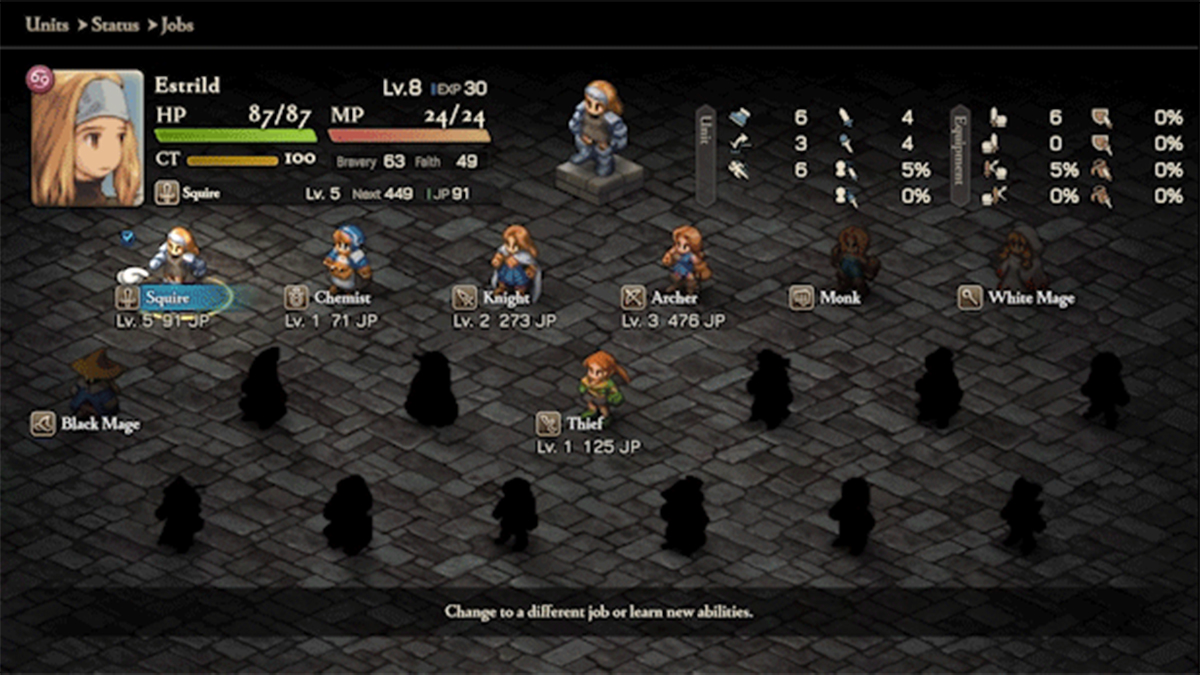
What is most fun about the game is the endless experimentation you can do with your characters. Each character has a primary job skill, a secondary job skill, a reaction skill, a support skill, and a movement skill. Out of the classes previously mentioned, some are far more useful than others, namely the Dragoon’s Ignore Elevation movement skill, which allows you to scale any elevation regardless of your Jump statistic, or the Chemist’s Auto-Potion, which gives you a chance (tied to your Brave statistic) to heal yourself automatically with Potions in your inventory, and the Ninja’s Dual Wield, which allows you to attack twice in one turn (for best results, equip this on a Monk due to their innate high physical attack and no need to use a weapon). Some Support abilities allow you to equip weapons regardless of job, poach monsters for rare and powerful items, boost job points (JP) gained, physical and magic attack, and more.
A system shrouded in mystery was the Zodiac system, comprising all the Zodiac signs we are familiar with in real life. The remaster gives it clarity, as certain Zodiac signs and genders will have lower or higher compatibility with one another, making your attacks and healing weaker or stronger. For instance, you can set Ramza’s birthday. I always use my own, which is within Virgo. This gives me a significant advantage against bosses. However, untangling this complex system and min-maxing can be left to a quick Google search.

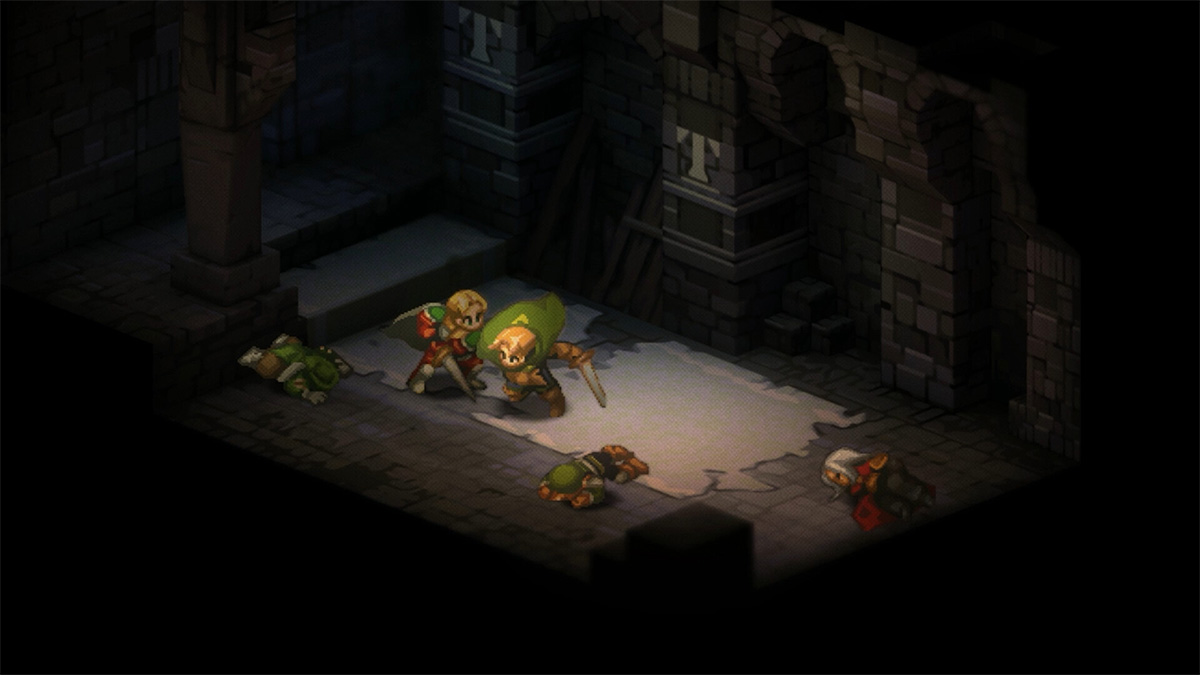
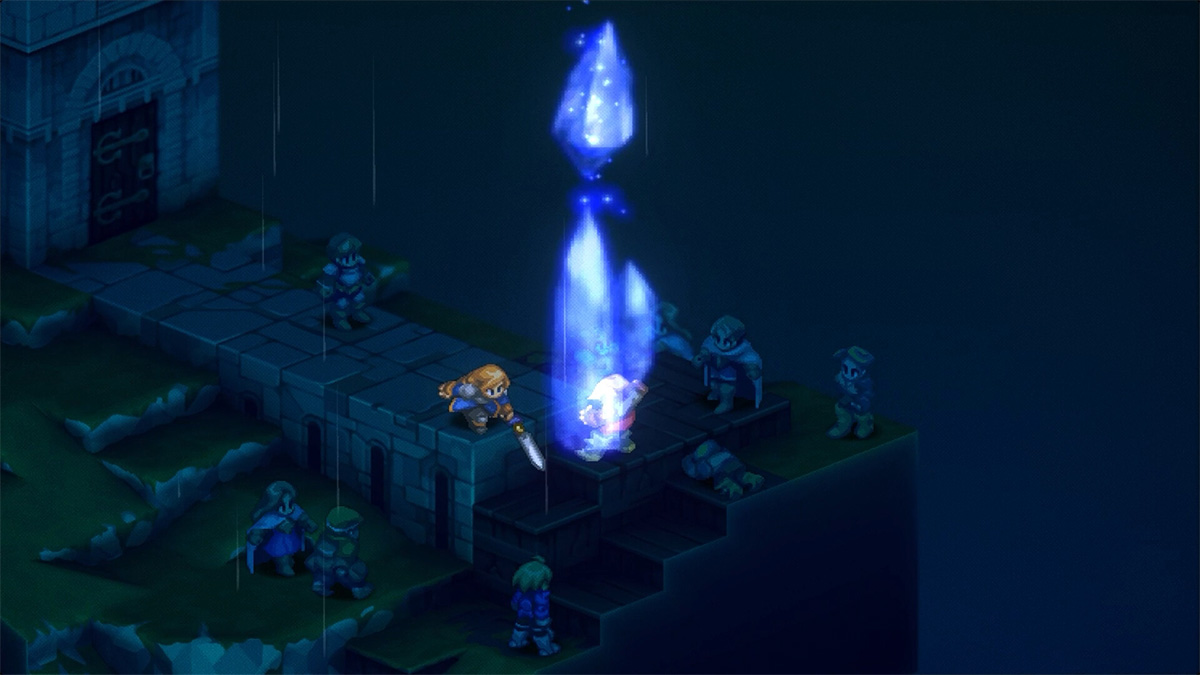
One of my favorite changes is full voice acting, but many people will have to look up the Medieval English terms to understand them. Some of the best quality of life (QoL) changes include a more unified layout for seeing your turns and enemy turns up front, as well as being able to save between battles if there were consecutive ones (one story battle chain in particular required immense preparations, so being able to save is a HUGE help). The music is also very moving and changes to match scenes in the story, making you feel the plight of the characters. One of the few complaints I have is that if you’re a lore junkie like myself, you have to intentionally prolong battles or bring certain party members to certain story battles to get more lore out of the game.
While a very good remaster, I would love for the War of the Lions content to return as DLC. As this was one of the few popular Final Fantasy games not to be formally released on all platforms, it should further signal a movement towards turn-based combat that we have seen with Expedition 33 and other games in the genre in recent years.
Developer: Square Enix
Publisher: Square Enix
Platform(s): PC, PlayStation 4, PlayStation 5, Xbox Series X/S, Nintendo Switch, Nintendo Switch 2
Words by Jose Alvarez
Also published in GADGETS MAGAZINE Volume 26 Issue No. 4
